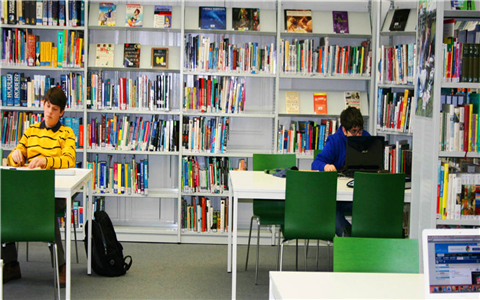-
 《传承宝典》25——与财富规划主管的两分钟访谈
《传承宝典》25——与财富规划主管的两分钟访谈
《传承宝典》25与财富规划主管的两分钟访谈 苏茜-希利尔 财富规划主管 作为财富规划主管,苏茜拥有超过20年的经验,为众多专业人士、企业家和董事会成员提供值得信赖的咨询服务,并与她多年来提供咨询的众多家族持续合作。苏茜为Stonehage Fleming集团制定了高标准的、技术规范的咨询服务——她在市场上受到广泛认可,尤其是在英国的养老金条款这一复杂的领域。 苏茜于2012年加入该团队,此前,她的大部分职业生涯都在伦敦金融城的特许会计师事务所德勤(Deloitte)、安达信(Andersen)和罗布森罗德(RSM Robson Rhodes)的专业咨询环境中,为私人客户提供服务。 在财富规划方面,我们集战略家和技术人员于一身。如果你能了解清楚客户财富的整体情况和目的,你就能帮助他们考虑他们的退休计划、投资、以及税务结构的选择。我认为,那些只专注于可投资资产或退休计划的公司,错过了太多可以为客户增值的机会。而我们则不同寻常地采用这种更广泛、更全面的远景观点。我们使用的最重要的工具是我们的耳朵。通常,我们对潜在客户说的第一件事就是“介绍一下您自己”。我们想知道客户对关键问题的看法和感受,而不仅仅是了解他们的资金流入和流出。我们想知道是什么驱使着他们,又是什么让他们夜不能寐。我们倾听他们说什么,并利用他们的反应来辅助建立其财富的战略。这些对话可能会非常有趣,而且通常与金钱无关。 我们通常会从财务“健康检查”开始。我们这样做是为了客户,不管他们的财富水平如何。这使我们能够根据某家人当下的财务状况来制订他们的目标,并突出他们应该考虑的领域。我们会研究“假设性”的情景,并展示不同的人生事件可能产生的相对影响,比如:婚姻、孩子的出生、退休或慈善事业。这是任何战略对话的一种良好开端。我们的客户发现我们的方法令人耳目一新,这有助于我们区别于同行。我们的客户范围很广。在这条频谱的一端,我们照顾的是处于财富积累第一阶段的“创富者”。他们会有将要继承并接受教育的下一代;或者只是白手起家、可支配收入有限的企业家。在另一端,我们关注超高净值个人,包括私募领域的专业人士,或运营着数百万级业务的经理人。 作为一个更广泛的国际家族办公室的一部分,对我们的客户来说具有很多优势。我们集团自身广泛的内部专家,使我们能够以一种精简和有效的方式为复杂的客户提供咨询。我们的客户可以接触到许许多多的专家,他们不必从头开始建立关系就可以与他们接触。客户对于我们会把他们推荐给公司内外最适合这份工作的人,始终都充满信任。我们是一家以人为本的机构。技术正在彻底改变客户对于交割的期望,但我们与市场的部分区别在于:我们建立了令人难以置信的关系。我们真正了解我们的客户,并有能力分享多年来解决其他家庭面临的类似问题所积累的知识。我们很难用技术来取代这一点。 English Version Susie Hillier Head of Wealth Planning As Head of Wealth Planning, Susie brings over 20 years experience as a trusted adviser to a wide client base of professionals, entrepreneurs and Board Directors and continues to work with many families that she has advised for many years. Susie sets our high standard of technical regulated advice delivery - she is widely recognized in the market particularly in the complex area of UK pension provision. Susie joined the team in 2012 having spent the majority of her career advising private clients from within the professional consultancy environment at City Chartered Accountants Deloitte, Andersen and RSM Robson Rhodes. In wealth planning we are strategists and technicians in one. You can only help someone think about their retirement planning, investments or tax structuring options if you understand the big picture and the purpose of their wealth. I believe that those firms who focus solely for example on investable assets or retirement planning miss so many opportunities to add value for clients. We are unusual in adopting this broader, holistic perspective. The most important tool we use is our ears. Very often the first thing we say to a potential client is, “tell me about yourself”. We want to know what our clients think and feel about key issues rather than just understand their financial inflows and outflows. We want to know what drives them and what keeps them awake at night. We listen to what they say and use their responses to help build a strategy for their wealth. These conversations can be very interesting and often have very little to do with money. We generally start with a financial ‘health check’. We do this for clients, no matter what their level of wealth. This enables us to plot someone’s financial position today against their objectives and highlight areas they should consider. We look at ‘what if’ scenarios and demonstrate the relative impact different life events may have, such as a marriage, the arrival of children, retirement or philanthropy. This is a good start for any strategic conversation. Our clients find our approach refreshing and it helps to set us apart from our peers. We work with a huge range of clients. At one end of the spectrum, we look after ‘accumulators’ who are in the first stages of building their wealth. They could be the next generation who will inherit and require education, or entrepreneurs starting out with limited disposable income. At the other, we look after ultra-high net worth individuals, including private equity professionals or owner managers exiting businesses for multiple millions. Being part of a wider international family office has many advantages for our clients. Our broad in-house expertise allows us to advise complex clients in a streamlined and efficient way. Our clients have access to numerous specialists, who they can engage with without building relationships from scratch. They have confidence in us to refer them to the best person for the job, whether inside or outside of the firm. We are a people business. Technology is revolutionizing client expectations around delivery but part of what differentiates us in the marketplace is that we build incredible relationships. We truly understand our clients and have the ability to share knowledge built from years of addressing similar issues faced by other families. We would be hard pushed to replace that with technology. Sooswiss为您提供 瑞士方向私人管家式的定制服务: 1)家族传承 2)财富管理 3)瑞士投资 4)居留计划 5)税务优化 6)家族治理 更多资讯请登录网站 www.sooswiss.com
-
 高尔夫球手请准备!欧洲大师赛巡回瑞士啦
高尔夫球手请准备!欧洲大师赛巡回瑞士啦
高尔夫球手请准备 欧洲大师赛巡回瑞士啦 01 顶级赛事 欧米茄欧洲大师赛,仅次于英国公开赛的欧洲最重要的锦标赛,也是欧洲历史最悠久的高尔夫球巡回赛。今年的比赛已经是第80届盛会。从1923年起,这项比赛就因为克莱恩 · 蒙塔纳(Crans-Montana)优越的球场环境和高山风光备受赞扬。 今年欧米茄名人大师赛的比赛形式为九洞高尔夫球比赛,并于第九洞举行推杆挑战赛,从而判定哪位选手拥有最为精准的球技。“克莱恩 · 蒙塔纳是一个壮观的高尔夫球场,也是我个人最喜欢的球场之一。参加欧米茄大师赛的我的朋友都是最顶尖的选手,因此我知道这是一场非常迷人的活动。” 塞尔吉奥·加西亚(Sergio Garcia)说。 02 群星荟萃 而今年可是特殊的一年,参赛的高尔夫球明星包括罗里·麦克罗伊(Rory McIlroy)、塞尔吉奥·加西亚(Sergio Garcia)和汤米·弗利特伍德(Tommy Fleetwood)等。而去年表现惊人,排名第六的中国选手吴阿顺也将与李·维斯特伍德(Lee Westwood)、丹尼·威利特(Danny Willett)和米盖尔-西蒙尼斯(Miguel Angel Jimenez)等传奇人物同场竞技。 🔺吴阿顺 欧米茄名人大师赛还吸引了全球众多的音乐和影视明星,他们为这场比赛燃起更多激情。你能想象吗?贾斯汀·汀布莱克(JustinTimberlake)和罗里·麦克罗伊(Rory McIlroy)搭乘同一架航班!多才多艺的演员和音乐家,与四位高尔夫主要获奖球手之一坐在一起畅谈,这样的画面为无数粉丝带来如梦似幻的惊喜感觉。 03 优越球场 所以究竟为什么克莱恩 · 蒙塔纳能够举办这样顶级的赛事,邀请到如此多的明星?那可就有的说了。 克莱恩 · 蒙塔纳的第一座高尔夫球场诞生于1906年,一个世纪以前瑞士人就发现了这个绝妙的场地。位于阿尔卑斯山区心脏地带的优越地理位置意味着你将可以在球场将附近山峰的壮丽风光尽收眼底。克莱恩 · 蒙塔纳的球场的海拔在1500米以上,在球场你可以欣赏到超过19座海拔4000米以上的雄伟山峰——当然包括标志性的马特宏峰和勃朗峰啦!最著名的球场非Severiano Ballesteros球场莫属。该球场包括一个九号洞球场和一个十八号洞球场。1999年,高尔夫名将Severiano Ballesteros设计改建了十八号洞,球场也改为以他的名字命名。球场总长6935码,从1939年起便一直是欧米茄欧洲大师赛的比赛场地。 除了Severiano Ballesteros球场以外,这座绝美高尔夫小镇还拥有三座十八洞球场,而且它们就集中在方圆20公里内。Severiano Ballesteros 和 Jack Nicklaus设计的果岭位于度假胜地的入口处,步行即可轻松到达;Jack Nicklaus球场亮点颇多——瓦莱州阿尔卑斯山的壮丽美景、平整的道路以及球场提供的精选装备;谢尔和锡永球场位于附近的罗纳河谷中,你可以欣赏到更多不同的美妙风景。 还有绝不可以错过的七号洞!它是世界40个最美球洞之一,在这里可以180度欣赏周围的巍峨山峰,魏斯峰就巍然挺立在你的视线之内。自然美景如此令人着迷。球场除了作为比赛场地,也对游客开放。如果你来,一定要挥上几杆,像曾站在这块球场上的明星大腕们一样。 04 度假胜地 除了高品质球场以外,克莱恩 · 蒙塔纳本身就是十分值得一去的山区度假胜地。像瑞士人那样享受群山的快乐,就是这里了。面向白雪皑皑的群山,沿着清澈的小溪徒步,骑着电动自行车轻松地前往山顶,欣赏绿色牧场上的奶牛,或者仅仅是呼吸新鲜的空气。在这里,完全自然地融入瑞士生活方式。冬季,高山上覆盖着美丽的积雪,与皑皑白雪嬉戏,滑雪、乘坐雪橇或雪鞋漫步都是带来快乐的绝佳方式。 当然,作为度假胜地,克莱恩 · 蒙塔纳还少不了奢华的商店、一流的酒店、舒适的水疗中心以及可享用全球各种美味的众多餐厅。 来吧,To: 克莱恩 · 蒙塔纳,像本地人一样感受瑞士。 文中的信息、图片等素材,来源于网络公开媒体的报道,如有侵权敬请告知删除。 Sooswiss为您提供 瑞士方向私人管家式的定制服务: 1)家族传承 2)财富管理 3)瑞士投资 4)居留计划 5)税务优化 6)家族治理 更多资讯请登录网站 www.sooswiss.com
-
 《传承宝典》24——可持续投资放首位, 有助实现家族财富目的
《传承宝典》24——可持续投资放首位, 有助实现家族财富目的
《传承宝典》24可持续投资放首位, 有助实现家族财富目的 莫娜-莎哈 投资策略与研究总监 莫娜是 CFA(特许注册金融分析师)执照持有人,拥有英国布里斯托尔大学经济学和政治学一级学位。在 Rathbones 投资管理公司担任集体研究主管并工作了11年之后,她于2018年9月在 Stonehage Fleming 家族办公室开始了新的挑战。莫娜是集团投资委员会的成员,并将于2019年下半年启动该集团多重 ESG 类(环境、社会和治理)资产的发行。她还负责对斯通哈格弗莱明的集体投资进行尽职调查,并致力于多资产投资策略和研究。她也是一家儿童慈善机构的受托人。投资于一个可持续的投资组合,是一个家族所能找寻到一个共同目标、并控制好其财富、用来做善事的、最简单的方法之一。根据我们最新的研究报告《变革时代的实用智慧和领导力》(2018年出炉的《资本的四大支柱》中的下一章),在接受调查的约150名各大家族成员和顾问中,75%的人表示更喜欢广义上负责任的投资(responsible investment)。 有趣的是,在对远期家族财富构成威胁的榜单上,投资风险仅排在第六位,低于一系列非财务风险,包括缺乏领导力、家庭纠纷和未能吸引下一代融入。 传统的金融分析和估值技术的批评者也认同这一观点,即与家族一样,投资者仅关注财务成本时,便可能陷入更大的风险之中。很难不同意这一点。然而,就如何能将这一点做到最好以期达成共识,就不那么显而易见了。诚然,将环境、社会和治理(ESG)因素纳入传统的财务分析并不是一个坏的开始。作为一项事业,我们的关注点是为几代人保存延续财富,因此,我们自然而然地提出了代际公平的概念。充分考虑入各种外部因素,也是如何来描述我们全球可持续投资组合“影响力”的一个重要演变。我们相信它可以对地球和社会都产生积极的影响。虽然我们不认为将ESG因素纳入投资分析会降低投资的风险,但我们认为将ESG框架作为风险管理过程的一部分,则可以带来更好的风险调整回报。除了在投资组合中纳入影响力投资之外,我们还将资本配置给股票和固定收益基金经理,他们使用更广泛的大数据,将负面的外部性降至最低。通过这种方式,我们提供的投资组合能够超越“不造伤害”的领域,继而迈向“积极行善”。为您所代表的家族建立战略,需要许多工作。没有设立有意义的目标,就不可能产生共同的价值观。但随着一代又一代的人,成长在一个社会成果日益优先于投资回报的世界里,我们能够看到可持续投资在我们合作的家族议程上的地位越来越高,也就不足为奇了。 English Version Mona is a CFA charter holder and has a first class degree in Economics and Politics from the University of Bristol. After eleven years at Rathbones Investment Management where she was Head of Collectives Research, she embarked on a new challenge at Stonehage Fleming in September 2018. Mona sits on the Investment Committee and is launching the firm’s multi asset ESG offering in the second half of 2019. She conducts due diligence on collective investments at Stonehage Fleming and contributes to multi-asset investment strategy and research. She is also a trustee of a children’s charity. Investing in a sustainable investment portfolio is one of the simplest ways a family can find a common purpose and take control of the good they are able to do with their wealth.According to our latest research report, ‘Practical Wisdom and Leadership for Changing Times’ (Four Pillars of Capital: The Next Chapter, 2018), 75% of some 150 family members and advisers surveyed expressed a preference for responsible investment in its broadest sense.Interestingly, investment risk only ranked sixth on the list of threats to long-term family wealth, below a range of non-financial risks including a lack of leadership, family dispute and a failure to engage the next generation. Critics of conventional financial analysis and valuation techniques share this view that, like families, investors focus on financial costs alone at their peril. It is difficult to disagree with this. How to reach a consensus on how best to do this, though, is less obvious. Integrating environmental, social and governance (ESG) factors into traditional financial analysis, however, is not a bad start. At least it helps you to better consider the‘externalities’, both positive and negative. As a business, our focus is on preserving wealth through the generations, so it is only natural that we address ourselves to the concept of inter-generational equity. Considering the externalities is an important evolution for how we describe the ‘impact’ from our Global Sustainable Investment Portfolio.We believe it can have a positive impact both on the planet and society. While we don’t believe in corporating ESG factors into investment analysis results in lower risk investments, we believe that adopting ESG frameworks as part of a risk management process leads to better risk-adjusted returns. In addition to including impact investments in the portfolio, we allocate capital to equity and fixed income managers who use abroader array of data to minimize negative externalities. In this way, the offering is able to transcend the ‘do no harm’ territory and enter into “actively doing good”.Establishing what you stand for as a family takes work. Without setting meaningful objectives, engendering a sense of shared values will not be possible. But with successive generations growing up in a world where social outcomes are increasingly prioritized over investment returns it is unsurprising that we see sustainable investment moving ever higher up the agenda for the families we work with. Sooswiss为您提供 瑞士方向私人管家式的定制服务: 1)家族传承 2)财富管理 3)瑞士投资 4)居留计划 5)税务优化 6)家族治理 更多资讯请登录网站 www.sooswiss.com
-
 在瑞士国际寄宿学校,如何做好考前准备
在瑞士国际寄宿学校,如何做好考前准备
在瑞士国际寄宿学校如何做好考前准备 第一章:课堂之内 春季学期已经开学,我们的学生将开始认真积极地上课,并多尝试新的课外活动,广交新的伙伴,还有很重要的一点:要做好考前的认真复习工作。 春季学期有很多重要的考试,考试可以打磨一个学生的意志品格、铺设未来前进的道路,所以学校均设有学制众多、专业权威的考试,如:IGCSE, A Level, SAT, IELTS和欧洲各国语言考试。 以下的贴士和建议可以让你在春季考试前,始终处于一个相对优势的位置。包括一些具有里程碑意义的考试,如:A Level和SAT等。其实,学生在每个阶段,都可以接受这些良性有益的学习建议。 第二章:获得先机的小贴士 1.按时参加每一节课程 无论是平时的课程、调研还是考试,学生需要保证每节课的出勤率才不会遗漏任何一个知识点或教学素材。准时出勤体现了学生对老师的尊重和对知识的渴求,学生还需养成课前预习的习惯。如果你因为生病不能参加,让一位朋友帮你做好笔记,或者直接去问问老师你错过了什么。 2.上课时坐在前排位置 当你坐在教室的前排时,会很容易保持注意力和专注力。瑞士的寄宿制国际学校独特且精品,这种班级规模可让所有学生以最佳方式融入进来。充分发挥师生比的优势。 3.养成在课堂上勤记录的好习惯 学会随时记笔记是一项非常重要的技能,并且将会伴随你直到大学。尽早建立起这个好习惯对你的帮助会很大。每年的阅读周,学校都会请到一位著作记者来到校园,为学生们讲解写作上的心得感受。像这样的嘉宾讲座、展示活动和更多机会,可以为学生们多多利用,在这样的平台上,加以练习和记录,这样就会自然而然地养成习惯了。 4.确保学会了所有知识点 在校老师鼓励他们的学生随时提问。来学校听课的嘉宾,都着重提到了学生们展示出了很强的课程参与感。如果你对老师教授的知识感到困惑,或者说对解释的概念有拿不准的情况,不要害怕主动提出问题。通常,勤学好问的学生能学到更多的知识。在学习过程中如果有不理解的地方,学会随时寻求帮助,如果你向其他同学请教问题,他会对此十分感激。 5.课后复习课堂笔记 考前最好的方式就是仔细研读你的课堂笔记,最好是在考试的当天,可以让你达到最好的复习效果。即使只是快速浏览一下你记录过的内容,也能帮助巩固你所学的课程知识,很容易帮你回忆起关键的考点。学校全体老师和员工,很愿意随时给学生提供单独的学术辅导。小班授课可让每名学生认真投入到课堂,并确保他们的吸收率,不会忽略任何一名孩子的感受。 第三章:如何化解学习压力的贴士——学习与自我呵护的平衡 学生如果能关注一些化解压力的贴士,对他们来说会很有帮助。在备考之前,老师、员工和家长会说出一些积极鼓励的话语,同样能缓解压力。相反,如果你无法合理化解压力的话,你很可能会面临困境、或陷入到沉重的压力中。如果你面临压力,往往很难获得一个舒适放松的睡眠,你的注意力会开始衰退,很简单的任务也会耗费很长的时间,更不用说广泛地学习了。因此,平衡好学习和健康之间的关系,就变得至关重要。 以下是在瑞士的布里蒙(BrillantMont)国际学院:学生福利和关怀协调员布朗夫人、及其副教务长维克多•麦克莱恩的帮助下,整理出的9点建议: 1.提前做好学习和复习计划,确立自己的社交和休息时间。有组织、有条理性的学生,意味着他们不必牺牲自己的睡眠、健康、社交生活、或者其他写作业的时间,这样你就可以轻松从容地应对各种任务和要求,有了这份计划还不会忘记任何重点。 2.不要设立不切现实的目标:像周六一天学习10个小时之类。而最好是设立一个能在短期内完成的目标,并做到劳逸结合。 3.你不必掌握一切知识,你可以先从自己熟知的章节开始学习,增强自信心,勤学好问。 4.健康饮食并多喝水。看上去这是再基础不过的贴士,但是当学生一门心思地倾注在学习中时,很容易遗忘这点。 5.加强体育锻炼。最能让大脑得到充分休息并激活它的方式就是经常锻炼,不断获取能量,包括:伸展热身、户外跑步或快走、与你的朋友结伴踢一场球,乃至任何能让你动起来,离开大脑运转几分钟的活动。 6.睡眠是至关重要的。不要把事情拖到最后一分钟,然后再通宵(all-nighter)来完成。根据最新的一项研究,熬夜会导致运动和注意力受损,同样还会造成记忆力减退。此外,刚学习完就尝试入睡的话,会极大的影响睡眠质量,所以在睡前最好还是做一些放松或有益身心的事情。 7.考试当天的早晨,不要再去复习功课,也尽量避免和同学去过多地讨论考试的答案,以免产生更多压力。 8.找一处整洁干净的地方,你所处的环境非常重要,得避免让你分心。如果你听着舒缓的音乐,也会让你更专注地学习。如果你的环境是杂乱无章的,那会产生很多的压抑感。 9.对自己坦诚些,并知道自己的极限。可以养成良好的学习习惯。10.多利用校方的教学资源支持。向他人寻求帮助永远不会太早或太晚,根据你的学习计划来审视需要哪些帮助。询问其他同学是否能让你加入进一个学习小组。一旦老师在你身旁时,就多向他们提问题。 该文章转载自雷梭勒家族办公室,如有侵权,敬请告知删除。 English Version Exam Prep at Swiss Boarding School Part I: In the Classroom The spring term has begun and as our students begin immersing themselves in their classes, trying out new activities, and making new friends, it is important not to forget to start preparing for exams. Spring is the time for many of the important exams of your boarding school career, tests that will shape your future. School prepares students to take IGCSE, A Levels, SAT, IELTS and European language exams. The following are some tips for how to get ahead in your exam prep. Whether this spring includes a milestone exit exam for you such as the A levels or SATs, or just a challenging term of regular classes, every student at every level can start to adopt some of these healthy learning habits. Part II: Tips for getting ahead 1. Attend every class and be on time Whether it is a class or an exam workshop, attend every one so that you do not miss any important material. Being on time shows respect to the teachers and shows them that you are eager to learn, plus sometimes reviewing is done at the beginning of class. If you cannot attend because youre ill, have a friend take notes for you or ask the teacher what you missed. 2. Sit near the front It is easier to pay attention and stay focused when you sit near the front of the class. Swiss boarding schools are unique in being a small international school, so class sizes allow for all students to engage in ways that work for them. Take advantage of the fantastic student to teacher ratio. 3. Get into the habit of taking notes Taking notes is an important skill that you will need in university. Start getting into the habit of taking them early on. Every year during reading week, school brings in an author to talk to the students about their work. Guest lectures and workshops like this allow for even more practice opportunities. The more you do it the more natural and easy it becomes! 4. Make sure you understand everything Teachers encourage their students to ask questions. Guests that have come to our school have noted the high level of engagement that our students demonstrate. If you are confused by something being taught, or are unsure of a concept that was just explained, do not be shy to ask questions. It is often the people that speak up who end up learning the most. And chances are that if you do not understand something, you are not alone. Another classmate will be grateful that someone asked for clarification. 5. Review your notes after class One of the best tips for early exam preparation is to go over your notes after class, ideally the same day. Even a quick glance over what you wrote will help solidify and consolidate what you have been learning and make it easier to recall information on the test. The excellent teachers and staff at school are happy to work with you individually to provide study support. The small size of the school allows for individualized attention to be sure that no student falls behind or feels overwhelmed. Study Tips for Stress: Balancing Studying and Self-Care (Part III) It is all well and good to keep in mind all of the study tips for stress that we have provided, as well as the words of encouragement around exam preparation from teachers, staff and parents, but if you aren’t careful you can easily burn out on studying and fall under an oppressive cycle of stress.When you are under stress, it is often more difficult to get restful sleep, your focus will start to wane, and you will take longer to do simple tasks, let alone extensive learning. It is therefore essential that you carefully balance studying and self-care.、 The following are some tips compiled with the help of Mrs. Brown, the Brillantmont Student Well-Being and Pastoral Care Co-ordinator, and Victor McClean, the Assistant Academic Head.Plan ahead your study sessions or revision routine. Build in social time and breaks. Organization means you often do not have to sacrifice your sleep, health, social life, or other school assignments or studying and you can breath easier knowing aren’t forgetting something important.Do not set unrealistic goals like 10 hours of studying this Saturday. Instead set a goal of finishing a certain task and build in breaks.You do not have to know everything if you are worried about a topic start with your strengths to build confidence and always asks questions. Eat well and drink plenty of water. This seems pretty basic, but is often neglected when we get immersed in our studies.Do some physical activity. The best kind of break to reactivate your brain and get new energy includes stretching, going for a short run or walk, or kicking a ball around with friends. Anything that gets you moving and out of your head for a few minutes.Sleep is vital. Do not leave things to the last minute and then pull an “all-nighter.” According to a recent study, one night of no sleep results in impaired movement and focus as well as memory retention. In addition, you will not sleep well if you try to study right up to going to bed. Do something to wind down and relax before you go to sleep. Do not revise the morning of the exam and avoid talking to friends about the exam as this will lead to stress.Your environment is important. Find a tidy, clean space that will limit distraction and interruption. If you study well listening to calming music, put your headphones in. Clutter can increase stress and the sense of overwhelm.Be honest with yourself and know your limits. Allow this to guide your study habits. Use teachers and staff as resources and support. It is never too early or late to reach out. Ask for help in looking over your study plan. Ask other students to join you in a study session. Ask your teachers questi...

 《传承宝典》25——与财富规划主管的两分钟访谈
《传承宝典》25——与财富规划主管的两分钟访谈
 《传承宝典》24——可持续投资放首位, 有助实现家族财富目的
《传承宝典》24——可持续投资放首位, 有助实现家族财富目的
 在瑞士国际寄宿学校,如何做好考前准备
在瑞士国际寄宿学校,如何做好考前准备